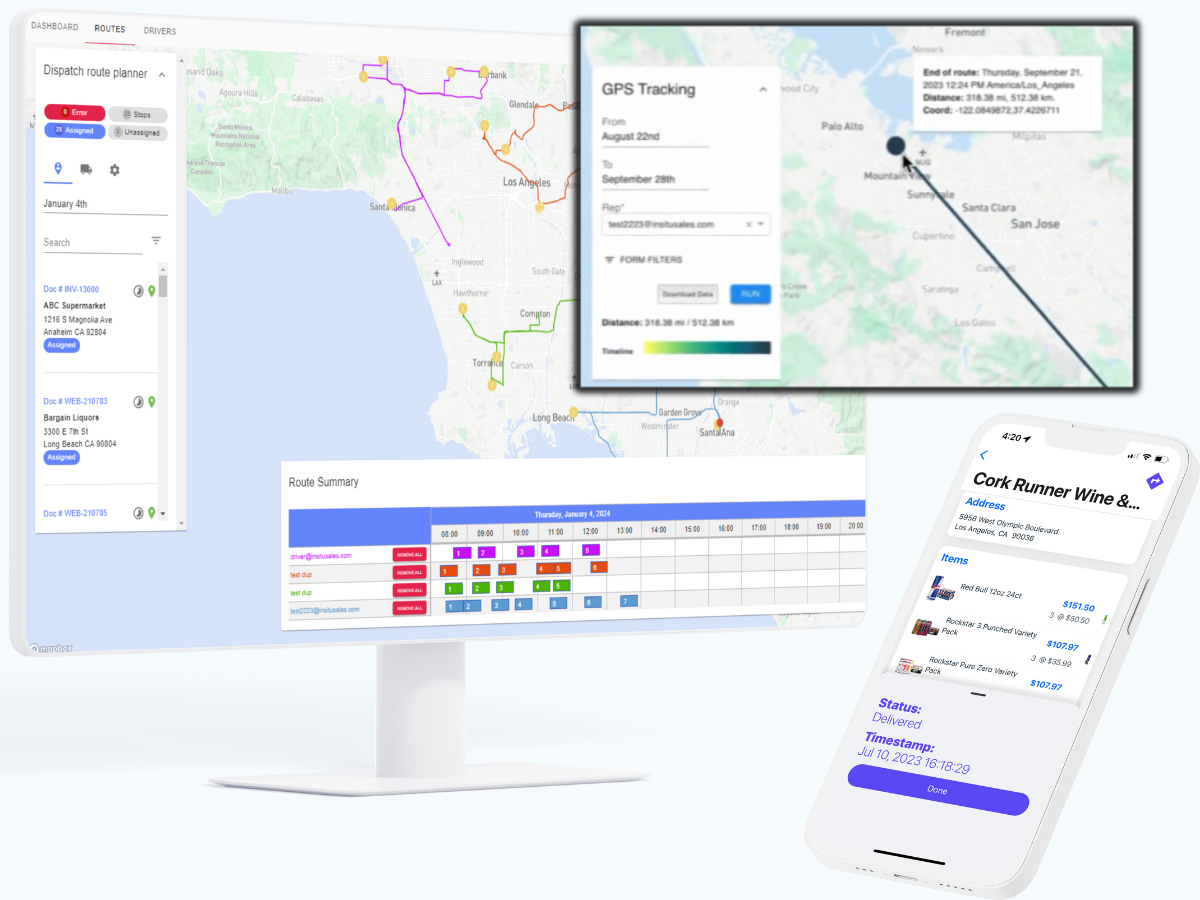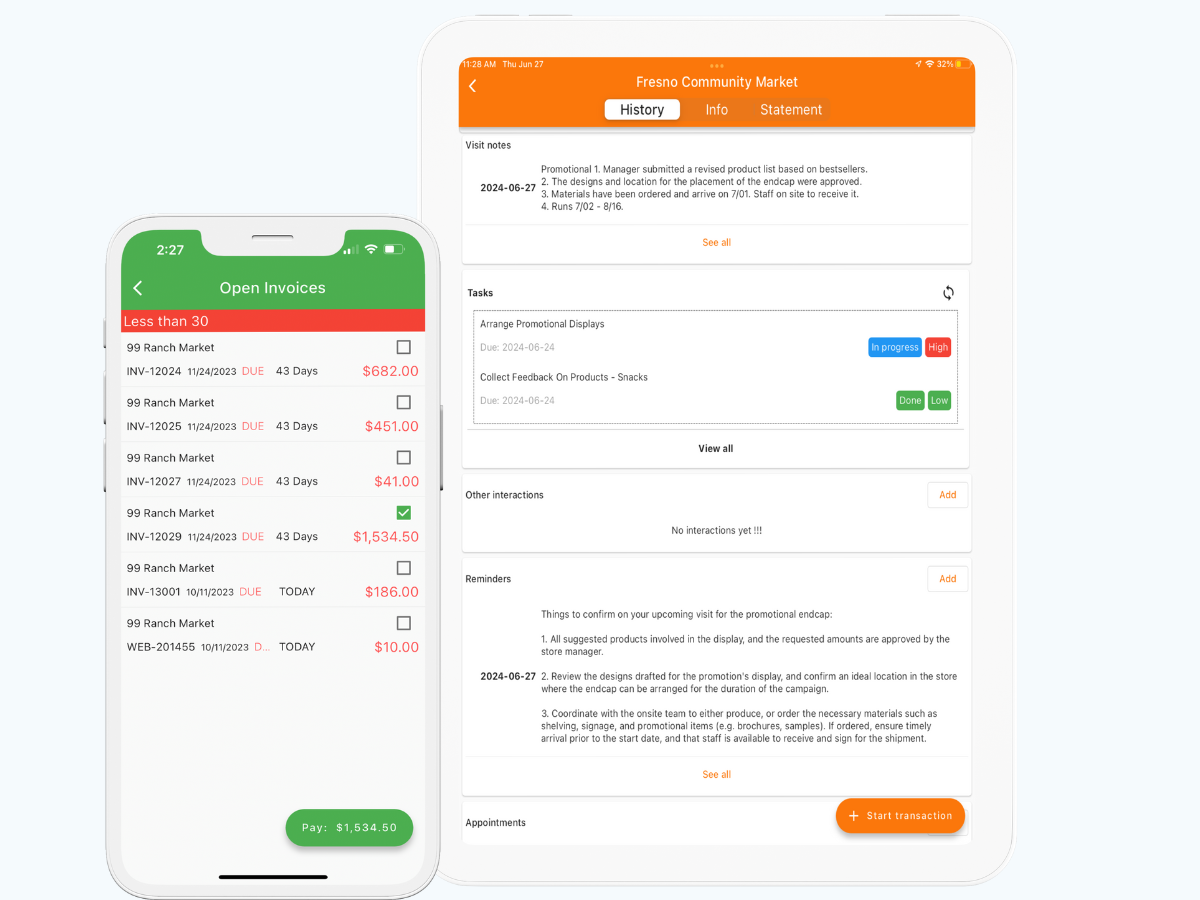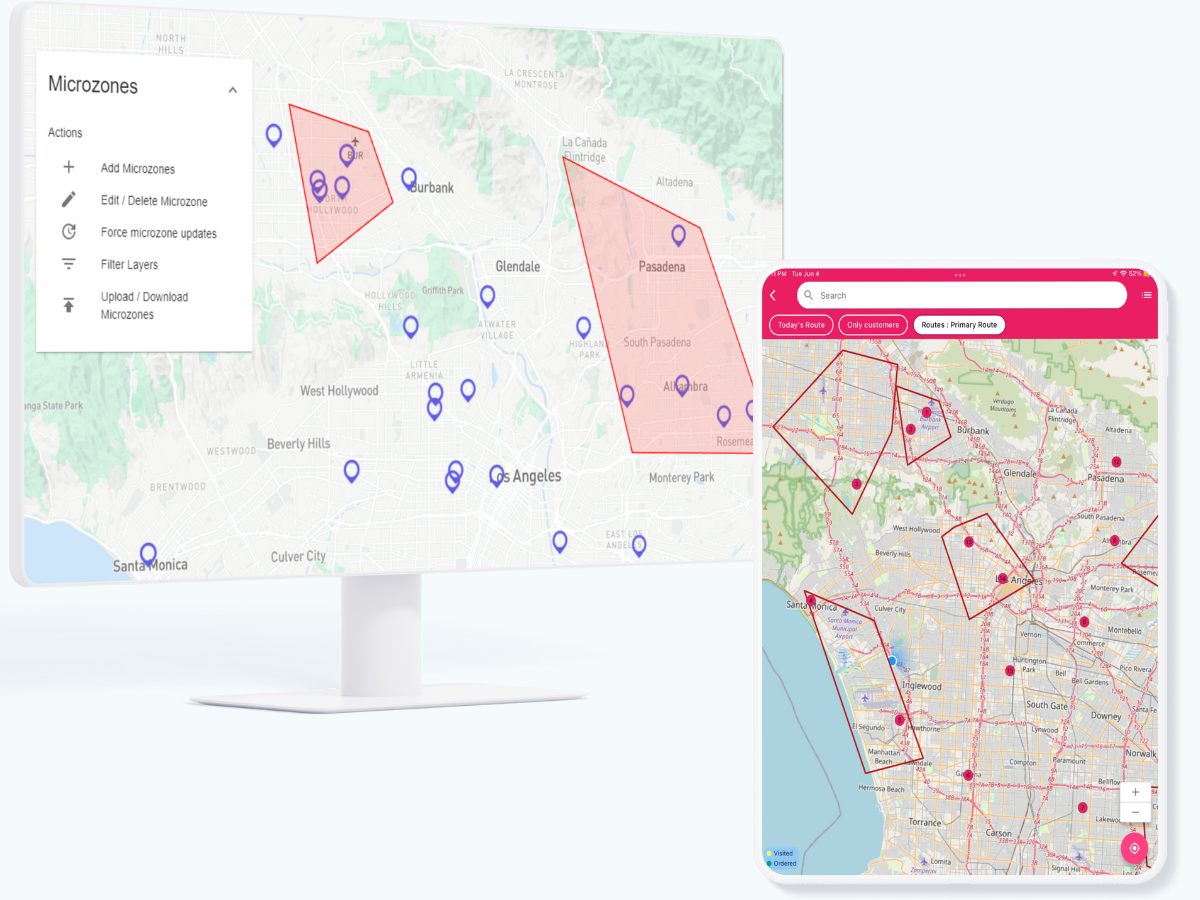
How To Succeed In Field Sales For 2025
For wholesale distributors, field sales remains a crucial component of their day to day sales cycles. Field sales representatives are on the front lines, directly engaging with clients, building relationships, and driving revenue growth. However, with the rapid evolution of technology, shifting market dynamics, and rising customer expectations, sales reps face unique challenges that companies are must anticipate and counter. Let’s dive into some of the most significant challenges and explore ways to overcome them.
Understanding Field Sales Challenges
To understand the hurdles in field sales, it’s essential to recognize the shift from traditional, face-to-face interactions to a more tech-driven approach based around mobility, efficiency, and convenience. This means sales reps should be utilizing their skills in classic relationship-building techniques, while applying that framework with integrations and apps to maximize their sales potential. Digital tools such as software platforms and mobile apps are essential, but they only work when blended with the sales knowledge necessary to tackle underlying problems.
Challenge #1: Managing Time Efficiently
Field sales reps are often responsible for a wide range of tasks, from client meetings to administrative duties, making time management crucial. Poor time management can impact performance, leading to missed sales opportunities and customer dissatisfaction. Prioritizing tasks, using digital tools to optimize schedules, and setting daily goals can help sales reps stay on track and improve productivity. Sales order management is a software that handles automation saving vital time, while also eliminating the possibility of manual error.
This problem can be addressed in multiple places to ensure transparency and reliability as well, aside from just efficiency. For instance, our software provides time management and planning solutions for both admins & reps in the field. Admins can benefit from our sales route planner on either our standard Sales Route Planner, or the Route Summary for inSitu Dispatch. This provides the most optimal route to save time, while assigning expected timestamps for each stop, and factoring in variables such as desired starting location, and whether round or one-way. Live GPS data is also available for admins at any time, for an extra layer of assurance. Drivers and reps can also use the app to make predictions on their schedule, and use it to clock in or out.

Challenge #2: Adapting to Digital Transformation
The field sales landscape has been significantly impacted by digital transformation. Reps are now expected to be proficient with Customer Relationship Management (CRM) systems, sales automation tools, and even B2B Ecommerce for an omnichannel approach. Embracing these tools can streamline processes, but they also require initial onboarding, routine training, and adaptation.
Managers can counter this by being mindful with how many different solutions they introduce, keeping the number of processes reps learn lower, and choosing platforms with user-friendly support. Avoid getting too eager and overwhelming your team, after all, there is no one sales software perfect for every company in every scenario. Ideally teams can reach a point where they first begin to innovate new approaches or ideas through the lens of their sales platform’s dashboard before taking any manual action.
Challenge #3: Building and Maintaining Relationships
One of the biggest strengths of a field sales rep is the ability to form personal relationships with their key clients. Yet, maintaining these connections over time, especially with remote or digital interactions, can be challenging. CRM features for sales reps were something we had mentioned previously as a core necessity for reps to easily communicate, and stay on top of tasks important to that customer. Building trust, checking in with customers regularly, and showing genuine interest in their needs can help establish long-lasting relationships. On a simpler level, we also help sales reps foster a more convenient environment for their transactions. When using the B2B Ecommerce software, customers can easily reorder set lists of products, or check a list of favorites they’ve previously assigned, making large shipments a breeze.

Challenge #4: Managing Unpredictable Schedules
Unpredictability is an inherent part of field sales. From unexpected store cancellations to traffic delays, disruptions can throw off a sales rep’s day. Planning for such contingencies, keeping a flexible schedule, and having a backup plan can help minimize the impact of these disruptions. But for a stronger, more proactive approach, using our Sales Route Planner means that any last minute changes can be seen live in realtime, automatically re-optimized accordingly, then communicated between both reps and admins. Of course, because the stops are dynamic and produce a numbered list, any customer can be skipped over as needed without disrupting the rest of the route.
Challenge #5: Handling Rejection and Maintaining Motivation
Rejection is part and parcel of any sales role, and in field sales, it can be particularly tough. Constant rejections can affect a rep’s confidence and morale. Staying motivated despite setbacks requires resilience, a focus on long-term goals, and techniques like celebrating small wins to maintain positivity.
Challenge #6: Navigating Competitive Markets
Field sales professionals often operate in highly competitive markets, where customers have multiple options. Standing out requires thorough market research, understanding what competitors offer, and effectively communicating the unique value of one’s products or services.
Essentially, sales managers and executives are responsible with anticipating and/or forecasting what new innovations could be desired within their space, then moving to fill any openings or weaknesses exposed. The most direct way to tackle this is to look into what competitors are doing with their strategy, along with collecting feedback straight from your customers themselves. Often times customers are willing to be vocal about how their ideal order cycle would look, and they’re likely to have a relatively solid understanding of market offerings that best address needs.
Challenge #7: Achieving Sales Targets
Sales targets are essential for measuring performance, but meeting them can be a significant challenge. It’s good to have reps shoot as high as possible, but pushing for too much will only result in frustration, loss of confidence, and feelings of futility for future growth. Setting realistic goals, breaking down targets into smaller objectives, and consistently following up on leads can make reaching these targets more attainable.
Expectations or sales goals should be communicated clearly, and recorded in an accessible way for teams to check progress and track increments. To keep your reps closer to their objectives, we’ve added a Sales Goals section on the mobile dashboard of the Field Sales app, right below the section reporting sales activity for invoices, orders, & payments. As transactions are completed, set goals will automatically update live in realtime to keep motivation high and the finish line in sight.
Challenge #8: Communication Hurdles
Effective communication is key in field sales, both with customers and within the sales team. Sometimes, language or cultural barriers can pose challenges. Being mindful, asking clarifying questions, and tailoring communication styles to clients’ preferences can enhance clarity and rapport.
Challenge #9: Managing a Large Territory
Sales reps who cover large geographical areas often face logistical challenges. Like we’ve discussed previously, route planning tools can be a tremendous assistance when combined with proactive solutions such as scheduling routine visits. We also offer a more direct approach to sales territories in the form of microzones, which are smaller territories that admins can section off and assign to reps at will. This can easily simplify sales operations in larger territories with a wide spread of customers, allowing reps to allocate time easily, and focus their efforts where needed.

Challenge #10: Maintaining Work-Life Balance
Field sales often involve irregular hours, which can blur the line between work and personal life. Setting boundaries, managing time effectively, and taking breaks can prevent burnout and help maintain a healthy work-life balance.
Conclusion
Field sales professionals face numerous challenges that can impact their performance and well-being. From managing time and adapting to technology to handling rejection and navigating competitive markets, field sales reps need resilience and adaptability to thrive. By addressing these challenges with effective strategies, field sales professionals can build stronger client relationships, meet their targets, and achieve long-term success.
FAQs
1. What is the most common challenge for field sales professionals?
Time management is a major challenge due to the diverse range of tasks that field sales reps handle, which can make balancing responsibilities difficult.
2. How does technology help in overcoming field sales challenges?
Technology, like CRM systems and sales automation tools, streamlines tasks, provides data insights, and enhances productivity, helping sales reps work more efficiently.
3. What skills are most important for field sales success?
Effective communication, time management, resilience, adaptability, and relationship-building are crucial for success in field sales.
4. How can field sales teams improve customer relationships?
Regular check-ins, personalized interactions, and actively listening to customers needs can strengthen customer relationships over time.
5. What strategies can help in achieving sales targets?
Breaking down targets into smaller goals, following up on leads, and using data to track progress can help field sales reps reach their targets more consistently.
